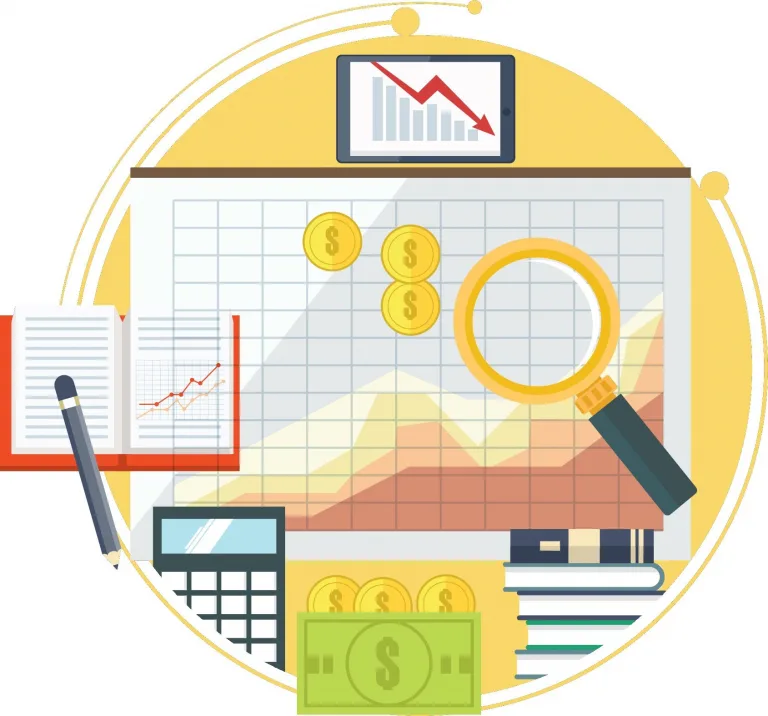In the world of business, making the right calls isn’t always straightforward. Sometimes, you have all the data in front of you, but something just doesn’t feel right. Other times, you’re forced to act on instinct, weighing risks and rewards in a heartbeat. That’s where business judgment comes in—the ability to combine knowledge, experience, and intuition to make decisions that drive results.
Disclosure: If you click on my affiliate/advertiser’s links, I am going to receive a tiny commission. AND… Most of the time, you will receive an offer of some kind. It’ s a Win/Win!
When I think about business judgment, a Finnish saying comes to mind: “Viisas oppii toisten virheistä, tyhmä omistaan,” which translates to, “A wise person learns from the mistakes of others, a fool from their own.” The lesson here? Good judgment isn’t just about personal experience—it’s about observing, learning, and applying those lessons to new situations.
In this article, we’ll break down what business judgment is, why it’s essential, and how you can develop it. Whether you’re a seasoned leader or just starting out, honing this skill will not only boost your confidence but also enhance your ability to make decisions that propel your business forward.

Table of Contents
1. What Is Business Judgment?
An introduction to the concept and its role in decision-making.
2. The Importance of Business Judgment in Leadership
Explore how sound judgment influences business outcomes and team trust.
3. Critical Thinking: The Backbone of Business Judgment
Learn how to assess situations objectively and make well-informed decisions.
4. Balancing Data and Intuition
Discover when to rely on numbers and when to trust your gut.
5. Learning from Success and Failure
Understand how past experiences shape stronger decision-making.
6. The Role of Emotional Intelligence in Business Judgment
Explore how self-awareness and empathy influence decisions.
7. Common Pitfalls to Avoid When Exercising Business Judgment
Learn about cognitive biases and other traps that can cloud judgment.
8. Developing Business Judgment Through Continuous Learning
Tips on staying sharp and informed in a fast-changing business landscape.
9. Real-Life Examples of Exceptional Business Judgment
Case studies and lessons from industry leaders.
10. Practical Steps to Strengthen Your Business Judgment Today
Actionable advice to start improving your judgment right now.
11. Summary and Conclusion: Mastering Business Judgment for Long-Term
Start Your Business Today with Registered Agents Inc. Click HERE.1. What Is Business Judgment?
At its core, business judgment is the ability to make sound decisions in the face of uncertainty. It’s not just about gathering facts or trusting your gut—it’s about synthesising information, drawing on past experiences, and understanding the bigger picture. Think of it as the art and science of making decisions that serve both short-term needs and long-term goals.
I like to think of business judgment as a muscle. The more you use it, the stronger it gets. Early in my career, I relied heavily on advice from mentors or endless spreadsheets of data. But over time, as I faced more challenges, I started recognising patterns, developing instincts, and learning how to trust myself. That’s when I realised: business judgment is something you build!
A good example of business judgment in action is recognising when to pivot. Imagine launching a product that isn’t performing as expected. Instead of doubling down and hoping for the best, sound judgment might lead you to reevaluate, gather customer feedback, and make strategic adjustments. It’s not always easy to admit something isn’t working, but that’s exactly where great judgment comes into play.
Actionable Insight: Start viewing every decision as an opportunity to develop your business judgment. Reflect on your choices—both good and bad—and ask yourself what you learned. Over time, these reflections will sharpen your instincts.
2. The Importance of Business Judgment in Leadership
Great leaders aren’t just visionaries—they’re decision makers. And while data and team input are critical, it’s ultimately a leader’s judgment that determines the path forward. Business judgment is what separates those who thrive under pressure from those who falter.
I’ve seen firsthand how sound judgment builds trust within a team. When leaders consistently make thoughtful decisions, employees feel confident in their direction. On the flip side, poor judgment can lead to chaos, second-guessing, and even erode team morale. As the Hungarian proverb “A fejétől bűzlik a hal” reminds us, “A fish rots from the head down.” In business, this translates to: poor leadership affects everything.
Sound judgment also protects businesses from unnecessary risks. A leader with strong judgment knows when to push forward, when to hold back, and when to say “no” altogether. It’s about finding the balance between boldness and caution—a skill that can make or break a company’s success.
Pro Tip: To build trust in your judgment, be transparent about your thought process with your team. Explain why you’re making a particular decision and how it aligns with the company’s goals.

3. Critical Thinking: The Backbone of Business Judgment
Let’s get one thing straight: good judgment doesn’t mean you have all the answers. What it does mean is that you know how to ask the right questions. That’s where critical thinking comes in. It’s about evaluating information objectively, challenging assumptions, and avoiding knee-jerk reactions.
I remember once being presented with a “can’t-miss” investment opportunity. The numbers looked great, and the pitch was polished, but something didn’t sit right. Instead of jumping in, I started asking questions: “What’s the downside?” “What’s their track record?” “What are the hidden costs?” By digging deeper, I uncovered issues that weren’t immediately obvious. It was a small decision, but it reinforced the value of thinking critically.
The French idiom “Réfléchir avant d’agir”—“Think before you act”—captures this perfectly. Critical thinking isn’t about being slow or indecisive. It’s about being deliberate, ensuring your decisions are based on logic and evidence rather than emotions or external pressure.
Actionable Insight: Practice challenging your assumptions. The next time you’re faced with a decision, ask yourself: “What if I’m wrong?” This simple question can reveal blind spots and lead to better outcomes.
Unleash the Power of Learning with our Edureka’s Master Courses. Click HERE for more info.4. Balancing Data and Intuition
In the age of big data, it’s tempting to think that numbers hold all the answers. But the reality is, even the most detailed analysis can’t account for every variable. That’s where intuition comes in. The best decisions often blend hard data with a touch of instinct.
I’ll never forget a time when I had to choose between two suppliers. On paper, one seemed perfect—cheaper rates, faster delivery. But something about their communication style felt off. My gut told me they’d be unreliable. Sure enough, a little digging revealed a history of missed deadlines and poor service. Listening to my intuition saved me a lot of headaches down the line.
The Swedish saying “Man ska lyssna på magkänslan” translates to “You should listen to your gut.” But here’s the key: your gut is only reliable if it’s informed by experience! Blind intuition is risky; informed intuition can be a game-changer.
Pro Tip: When making a decision, use data as your foundation but let intuition guide the final call. If something doesn’t feel right, take the time to investigate further.
5. Learning from Success and Failure
Let’s be honest—failure stings. But here’s the thing: every mistake is a chance to grow. Some of the best lessons I’ve learned in business have come from getting it wrong. The key is to reflect, adapt, and carry those lessons forward.
Take the Mandarin phrase “失败是成功之母” (Shībài shì chénggōng zhī mǔ), which means “Failure is the mother of success.” It’s a reminder that even our worst decisions can pave the way for better ones if we’re willing to learn. For example, after launching a product that flopped, I spent weeks analysing what went wrong. Was it the pricing? The messaging? The target audience? By the end, I had a clearer understanding of my market—and my next launch was a hit.
Success, too, offers valuable insights. When a decision works out, don’t just celebrate. Ask yourself why it succeeded. Was it the timing? The preparation? The team effort? Understanding these factors helps you replicate success in the future.
Actionable Insight: Keep a decision journal. After every major decision, write down what you did, why you did it, and the outcome. Over time, patterns will emerge that reveal your strengths and areas for improvement.

6. The Role of Emotional Intelligence in Business Judgment
Good business judgment isn’t just about logic and strategy—it’s also about understanding emotions, both yours and those of others. Emotional intelligence (EI) plays a huge role in decision-making because it helps you navigate the human side of business, from managing conflict to building trust.
For instance, imagine you’re leading a team through a high-stakes project. There’s pressure to perform, and tensions are running high. A leader with strong emotional intelligence (learn how to HERE) recognises these dynamics and takes proactive steps to ease the stress—whether by having one-on-one conversations, acknowledging the team’s hard work, or adjusting deadlines. This ability to empathise and respond appropriately can mean the difference between a team that thrives and one that burns out.
The Chinese saying “己所不欲,勿施于人” (Jǐ suǒ bù yù, wù shī yú rén) translates to, “Do not do unto others what you do not want done to yourself.” (This is a negative version of the Golden Rule.) It’s a guiding principle for using empathy in leadership. Business judgment isn’t just about what’s best for the bottom line—it’s about balancing outcomes with the needs of the people involved.
Actionable Insight: Start developing your emotional intelligence by practising active listening. In your next meeting, focus on understanding what others are really saying—not just their words, but their tone and body language, too.
7. Common Pitfalls to Avoid When Exercising Business Judgment
Even the most experienced leaders aren’t immune to mistakes. One of the biggest traps in decision-making is falling prey to cognitive biases—mental shortcuts that can cloud your judgment. Biases like confirmation bias (favouring information that supports your beliefs) or sunk cost fallacy (sticking with a bad decision because you’ve already invested so much) can lead to poor outcomes.
I’ve fallen into these traps myself. Once, I hesitated to pivot a project that wasn’t working because I’d already poured months of effort into it. In hindsight, I should have cut my losses sooner. As the French saying “Reculer pour mieux sauter” goes, “Step back to jump farther.” Sometimes, taking a step back is the smartest move.
Another pitfall is decision fatigue. When you’re making dozens of choices every day, it’s easy to lose focus or make hasty decisions. That’s why I swear by delegation—freeing up mental space for the decisions that truly matter.
Pro Tip: Before making a major decision, check yourself for biases. Ask a trusted colleague for their perspective—it can help you spot blind spots you might have missed.
8. Developing Business Judgment Through Continuous Learning
The world of business moves fast, and staying sharp requires a commitment to lifelong learning. The best leaders don’t just rely on past experiences—they actively seek out new knowledge to refine their judgment.
One way to do this is by reading widely, not just within your industry but across disciplines. For example, I’ve found insights from psychology and behavioural economics to be incredibly useful for understanding customer behaviour. Another method is to seek mentorship. Learning from someone else’s experience can fast-track your growth—after all, why reinvent the wheel?
The Swedish saying “Ju mer man vet, desto mer inser man att man inte vet” translates to “The more you know, the more you realise how much you don’t know.” It’s a humbling reminder that even the most seasoned leaders have room to grow.
Actionable Insight: Dedicate 30 minutes a day to learning. Whether it’s reading an article, taking an online course, or listening to a podcast, small, consistent efforts add up over time.
9. Real-Life Examples of Exceptional Business Judgment
Some of the greatest business success stories hinge on exceptional judgment. Take Steve Jobs, for instance. When he returned to Apple in the late ’90s, the company was floundering. Jobs made the bold decision to streamline Apple’s product line, cutting out distractions and focusing on simplicity and innovation. The result? The iMac, the iPod, and eventually, the iPhone—products that transformed Apple into one of the world’s most valuable companies.
Another example comes from Sara Blakely, the founder of Spanx. Her judgment to bootstrap her business and maintain 100% ownership allowed her to retain complete control over the company’s direction. Today, Spanx is a billion-dollar brand, and Blakely is celebrated as one of the most successful self-made entrepreneurs.
But great judgment isn’t just about big wins. It’s also about avoiding major losses. Howard Schultz, the CEO of Starbucks, famously resisted calls to expand too quickly in the early days of the company, focusing instead on creating a strong brand and customer experience. This decision laid the foundation for Starbucks’ global success.
Actionable Insight: Study case studies of business leaders you admire. Look for patterns in their decision-making and think about how you can apply those lessons to your own career.

10. Practical Steps to Strengthen Your Business Judgment Today
Improving your business judgment doesn’t happen overnight, but there are steps you can take right now to start making better decisions:
1. Reflect on Past Decisions: Spend time analysing what went well and what didn’t. Look for patterns and lessons that can guide future choices.
2. Ask for Feedback: Whether it’s from a mentor, colleague, or team member, outside perspectives can help you see things you might have missed.
3. Leverage Data: Use analytics tools to back up your intuition with concrete evidence. Even basic insights can lead to smarter decisions.
4. Practice Scenario Planning: Imagine different outcomes for a decision you’re facing. What’s the best-case scenario? The worst? This exercise helps you prepare for uncertainty.
5. Take Calculated Risks: As the Hungarian saying “Aki mer, az nyer” reminds us, “Who dares, wins.” Don’t be afraid to step out of your comfort zone—but do it with a plan in place.
Pro Tip: Start small. Apply these steps to low-stakes decisions first. As you gain confidence, you’ll find it easier to tackle the big ones.

11. Summary and Conclusion: Mastering Business Judgment for Long-Term Success
Business judgment isn’t just a skill—it’s the foundation of effective decision-making. It’s the ability to weigh options, evaluate risks, and find the best path forward, even when the stakes are high or the outcome is uncertain. Whether you’re a seasoned leader or just stepping into your role, honing your business judgment is one of the most valuable investments you can make.
Throughout this article, we’ve explored the many facets of business judgment: critical thinking, balancing data with intuition, and the role of emotional intelligence. We’ve also touched on common pitfalls like cognitive biases and decision fatigue—hurdles that every leader faces but can overcome with the right mindset. Above all, we’ve seen that good judgment comes from experience, reflection, and a willingness to learn from both success and failure.
In Finnish, there’s a saying: “Ei kysyvä tieltä eksy”—“One who asks will not lose their way.” It’s a reminder that the path to sound judgment is built on curiosity and openness. Seek advice, ask questions, and don’t be afraid to admit what you don’t know. It’s these habits that strengthen your ability to make confident, informed decisions.
As you move forward, remember that every decision—big or small—is an opportunity to grow. Reflect on your past choices, embrace continuous learning, and strive to find the balance between logic and intuition. Over time, these practices will transform your decision-making process and enhance your leadership skills.
At Krislai.com, I’m committed to helping you build the skills and mindset needed to thrive in today’s fast-paced business environment. Bookmark this blog, share your thoughts, and keep coming back for insights that will elevate your business acumen and leadership abilities. Together, we’ll navigate the challenges, celebrate the wins, and build a foundation for long-term success. Let’s grow smarter—one decision at a time 🙂
Koongo is Your Key to Marketplaces and Product Advertising online, allowing easy and affordable marketplace integration as well as data feed management. It helps you list products on marketplaces and advertising channels to reach new customers and grow your business.
Key Benefits:
- Sell Everywhere → Product/Order Syncing for Amazon, eBay, Zalando, Miinto, Wish, and more.
- Advertise Extensively → Google Shopping, Ads, TikTok, Facebook, Instagram, Bing, and more.
- Maximize the Rate of Successful Orders → Frequent data updates are made at 5/15/30 minute intervals.
- Save time → Ready-to-use templates for 500+ channels within the data feed manager with advanced functions.
- Risk-free → Try Koongo for 30 days – Full functionality & support included.
Learn more:
- Turn AI Anxiety into Competitive Advantage: How to Future-Proof Your Workforce for the AI Revolution
- Unlock Profit: Calculate Customer Lifetime Value & Maximize Growth
- Creating a Customer Persona: A Step-by-Step Guide On How To Do It
- Unleashing the Power of Digital Signage: The Best Software to Transform Your Business
- How Businesses Can Use Freelance Platforms & Expert Networks to Scale Smarter








